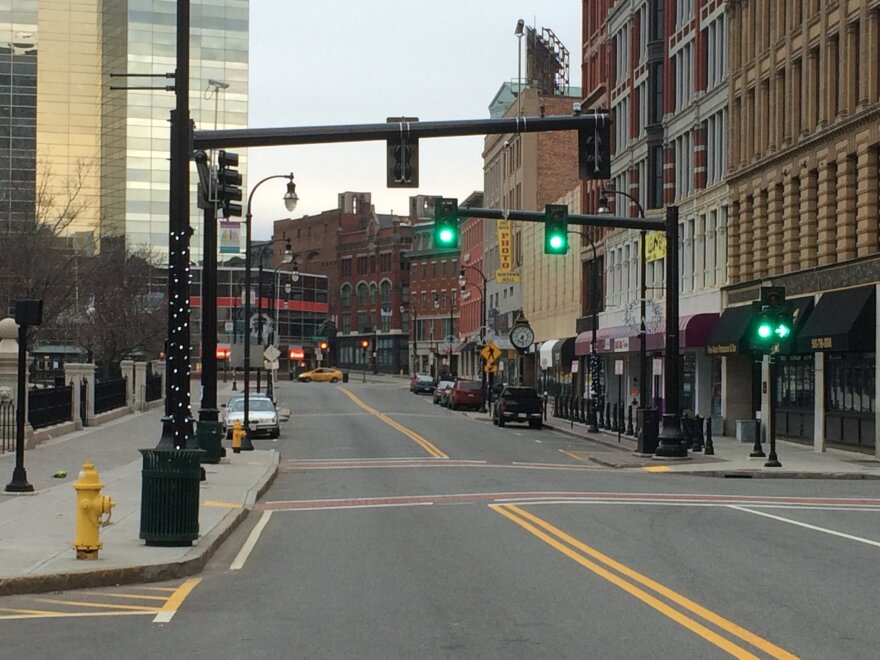A development boom in Worcester, Massachusetts -- the state's second largest city -- may indicate a comeback.
Journalist John Dyer, who wrote about the resurgence in CommonWealth magazine ("Worcester comeback seems for real"), said there's a worry the projects could push property values, and rents, to unaffordable levels. But he said developers clearly see something in the city.
John Dyer: It actually is pretty remarkable, especially if you’re from around this area. Because for so many years, one just felt that downtown Worcester was just completely dead.
They're building apartments and offices. They've revamped a lot of places. Ultimately, when you count all the spending, its been about $3 billion in Worcester over the past five, six years. It's a lot of money, and a lot of energy going into it.
There's a whole load of reasons "why now," and that's kind of what my story was about.
Carrie Healy, NEPR: So how did Worcester actually overcome that typical stigma of being a Gateway City and having that dead mall at the center of town?
I think a couple things happened. It really took a long time. If you consider that it's now 2018, and some of these -- there's a hotel that's still being built, I believe. The mall closed in 2006. That's more than a decade of a lot of time where it seems as if nothing was happening.


So it really was a combination of things: tearing it down, really seeking out people to replace it with mixed-use development.
But at the same time, I think the city of Worcester and its region were benefiting from some other things.
Boston is now exorbitantly expensive. Worcester is far cheaper. It's got loads of universities. It has a couple of large hospitals. It has absolutely the capacity to absorb world-class, sort of, brains. You know? So the combination of those things has worked out pretty well.
You mentioned "seeking out." There was that bid for Amazon HQ, and also the bid for the Pawtucket Red Sox. What happens if that doesn't land in the canal district?
It'll of course be a disappointment to people. But given that it's already in Rhode Island, if it happens to stay there, I don't think it's going to be a huge blow to people's egos here, you know what I mean? People aren't going to think that somehow the city failed, because it couldn't lure the team from Pawtucket.
But this whole process of showcasing the city, and working on different elements, they still could bear fruit. If the Pawtucket Red Sox don't build a stadium in the canal district -- what's happened though, [is] it's been showcased. There's a spot in the canal district that's totally ready for development.
Someone will come in and build on it. I mean, they seem to be building everywhere else around it.

Another part of your piece wasn't entirely rosy about progress and renaissance. Is there going to be some degree of leaving some in Worcester behind, with all of the progress? What about poverty?
The issue, obviously, is pretty complicated. Right now, it's pretty hard to be negative about things in terms of the developments, because there was an absence of anything. There was nothing there, there's no one living there, no one generating economic benefits there. It's just empty buildings.
So the fear of crowding out low-income people and whatnot, I don't think right now that is the problem.
But that being said, I do think rents will go up. There's a trend going on in the country where people are renting more. They're not buying houses as often. Younger people are staying in cities, so the rents are going up. That's happening everywhere.
I think this is probably hastening it a little bit, but I don't know how they could avoid it. I mean, Worcester's problem isn't going to be not having places where people can afford, because it's still obviously a place where loads of low-income renters live, and that's not going to change anytime soon.








